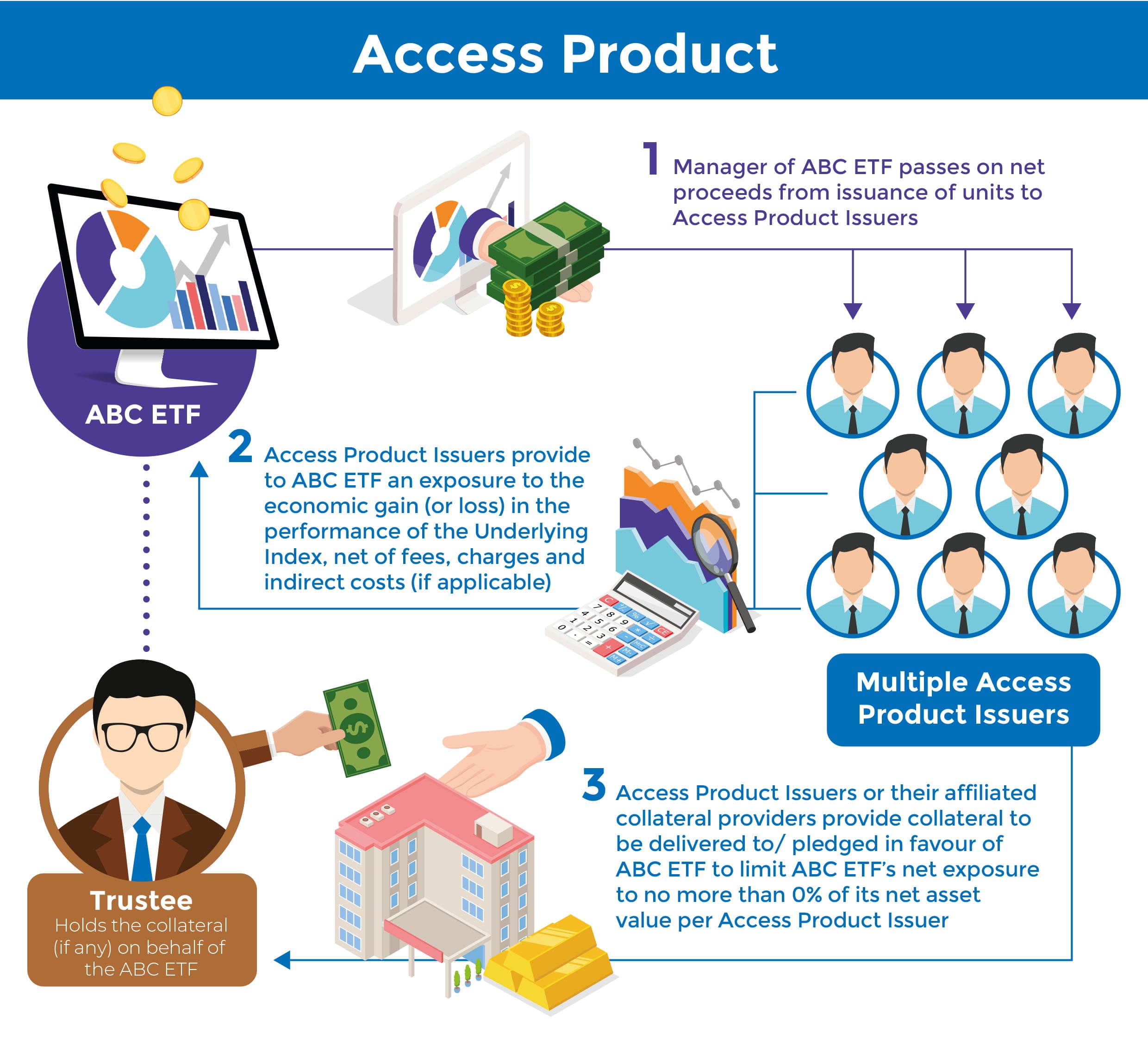Performance-linked access products
Key Messages:
- A synthetic passive ETF may have to invest in performance-linked access products, which are derivatives, to track the performance of an underlying index of a restricted market.
If the passive ETF seeks to track the performance of an underlying index of a restricted market, it may have to invest in performance-linked access products (Access Products), which are derivative instruments, in order to replicate the performance of the underlying index.
For example, a passive ETF adopting a synthetic replication strategy may invest in Access Products linked to securities in substantially the same weightings as those securities in the underlying index. The investment amount will be the net proceeds generated from the issuance of the synthetic passive ETF units, and in return, the Access Products issuer will provide the synthetic passive ETF with an exposure to the economic gain (or loss) in the performance of the underlying index (net of fees, charges and indirect costs, if applicable).
The relationship between the synthetic passive ETF and the Access Products issuers is explained in the diagram below.
The synthetic passive ETF manager will manage the fund with the objective to reduce to nil its single counterparty net exposure. Where the gross exposure to an Access Product issuer exceeds 0% at the end of each trading day, that Access Product issuer, or its affiliated collateral provider(s) will have to provide collateral to be delivered to/ pledged in favour of the fund to limit net exposure of the fund to the counterparty risk of the relevant Access Product issuer to no more than 0% of its net asset value.
Therefore, if a synthetic passive ETF invests in Access Product when adopting a synthetic replication investment strategy, the fund manager will be required to disclose the components of the collateral and their top 10 holdings in the collateral on their websites. Such information will have to be updated on a weekly basis.
19 May 2020




